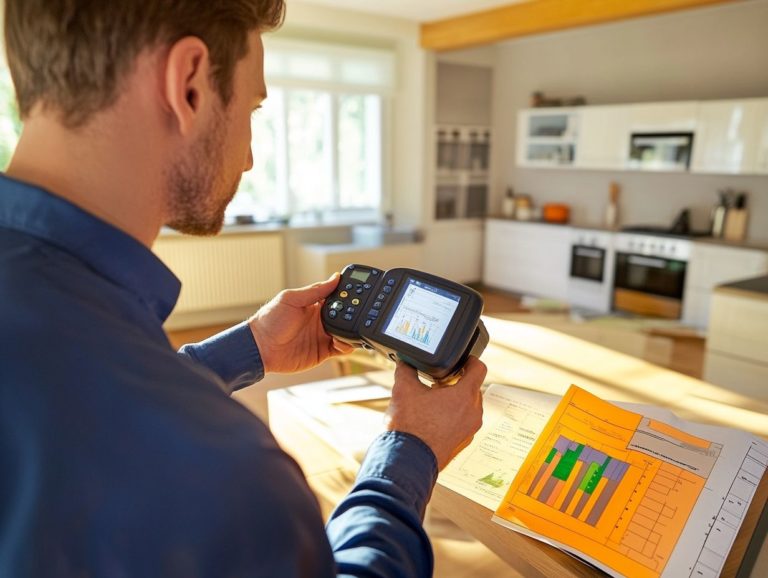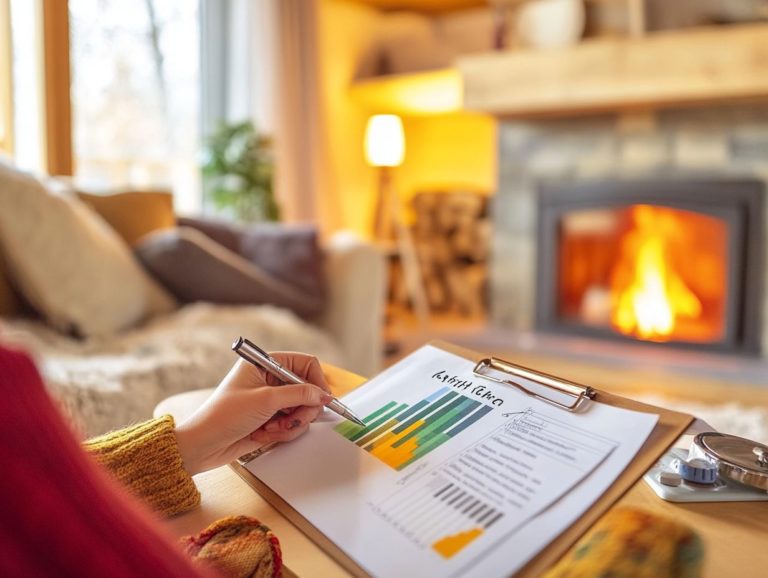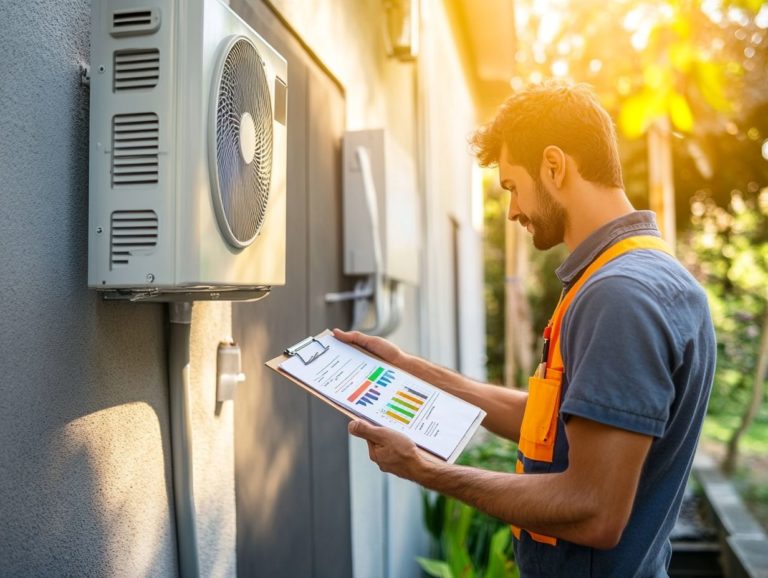How to Evaluate the ROI of Energy Audits
Energy audits serve as valuable tools for enhancing efficiency and cutting costs within any organization.
But how can you truly assess the value of these audits? Grasping the return on investment (ROI) for energy audits is vital for making well-informed decisions.
This article delves into the essentials of energy audits, emphasizing the significance of evaluating ROI and the key factors that impact it.
From calculation methods to actionable insights that can help you maximize your investment, you will acquire the knowledge needed to elevate your energy initiatives with confidence.
Contents
- Key Takeaways:
- Understanding Energy Audits
- Importance of Evaluating ROI
- Factors Affecting ROI
- How to Calculate ROI for Energy Audits
- Interpreting and Using ROI Results
- Maximizing ROI from Energy Audits
- Frequently Asked Questions
- What is an energy audit and why is it important?
- How can I evaluate the ROI of an energy audit?
- What factors should be considered when evaluating the ROI of an energy audit?
- Can the ROI of an energy audit vary depending on the type of building?
- Are there any other benefits of conducting an energy audit besides ROI?
- Can I conduct my own energy audit or do I need to hire a professional?
Key Takeaways:

- Learn what an energy audit is and why evaluating its ROI is crucial.
- Identify key factors like energy savings, audit costs, and incentives when calculating ROI.
- Use ROI data for smarter decisions and better returns from energy audits.
Understanding Energy Audits
Understanding energy audits is vital for elevating energy efficiency in your commercial and industrial buildings. These audits expertly uncover energy waste and inefficiencies in heating, cooling, and HVAC systems.
The process encompasses several stages, from initial assessments to comprehensive analyses that adhere to a set of guidelines for heating, ventilation, and air conditioning. You ll gain invaluable insights into your energy consumption, revealing opportunities for energy services and conservation measures that can optimize usage, lower operational costs, and minimize your overall carbon footprint.
What is an Energy Audit?
An energy audit serves as a thorough examination of your facility’s energy usage, designed to pinpoint opportunities for enhancing energy performance and efficiency through targeted conservation measures.
There are various types of energy audits, each tailored to meet the specific needs of properties, ranging from quick walk-through assessments to in-depth investment-grade audits.
Investment-grade audits utilize advanced energy modeling techniques, allowing for a precise analysis of your current energy consumption patterns and an accurate forecast of potential energy savings.
These meticulous evaluations often incorporate specialized software and methodologies to assess your facility’s systems, such as HVAC, lighting, and insulation.
By quantifying potential energy savings and associated costs, the audit not only provides guidance on practical improvements but also enables you to make informed decisions regarding investments in energy efficiency enhancements.
Importance of Evaluating ROI
Understanding the ROI for energy audits is key to unlocking financial benefits, including the impact of energy audits on property value. It enables you to assess the feasibility of various energy-saving projects within commercial buildings and industrial facilities.
Knowing the ROI shows the benefits and helps you decide on future energy efficiency investments.
Why Measure ROI for Energy Audits?
Measuring ROI for energy audits is essential, as it quantifies potential energy savings and strengthens the financial justifications for your energy management initiatives. To enhance your results, consider learning how to maximize your energy audit results and energy performance contracts.
By establishing a clear metric for evaluating the efficiency of energy investments, you can make informed decisions that align with your overarching strategic goals.
Effective ROI measurement is crucial for identifying risks tied to various investment options, enabling you to weigh potential returns against uncertainties.
This analytical approach not only enhances your understanding of investment performance but also lays a solid foundation for fostering transparency and accountability in financial reporting.
Ultimately, by incorporating robust ROI assessments into your energy management strategies, you can optimize your resources and promote lasting success.
Factors Affecting ROI
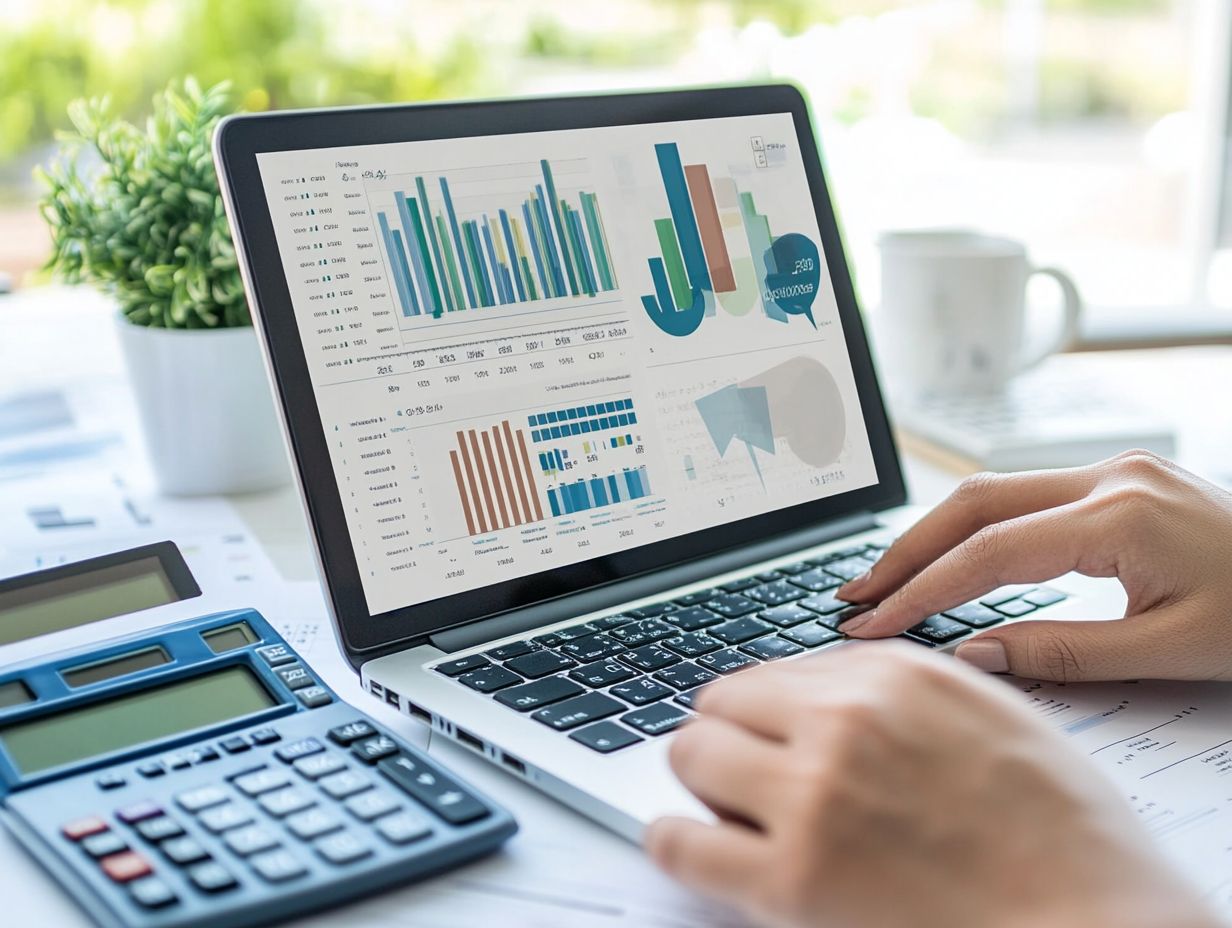
Several factors influence the ROI of energy audits for you. These include the initial capital costs tied to facility upgrades, ongoing operational expenses, the energy efficiency measures you choose to implement, and the precision of energy modeling in forecasting potential improvements in energy performance.
Key Variables to Consider
When assessing ROI from energy audits, there are key variables you should consider: energy consumption patterns, energy costs, how well things are working, and the financial aspects of capital investments made for energy conservation measures.
Understanding energy consumption patterns is vital. They reveal when and how energy is used throughout the day, enabling you to identify peak usage times where you can maximize savings.
By analyzing energy costs, you can pinpoint areas ripe for significant savings, particularly when renegotiating contracts with utility providers or implementing time-of-use strategies.
How well things are working is also crucial. Optimizing your processes can dramatically reduce waste and enhance productivity, leading to substantial financial benefits.
Finally, don t overlook the financial aspects, including upfront costs and potential tax incentives for investments in energy-efficient technologies. These factors are essential for evaluating the long-term gains you’ll achieve from reduced operational expenses.
How to Calculate ROI for Energy Audits
Calculating ROI for energy audits requires employing specific methods and formulas that allow you to quantify energy savings and operational cost reductions over a defined timeframe.
By meticulously analyzing these factors, you can gain valuable insights into the true value of your energy initiatives.
Methods and Formulas
There are several methods and formulas at your disposal for calculating ROI, including the straightforward ROI formula, payback period, and net present value analysis. Each is designed to illuminate the financial benefits of energy audits.
These calculations have practical applications that can substantially influence your decision-making process when considering energy efficiency upgrades.
For example, the simple ROI formula offers a clear lens through which to evaluate potential gains against the costs of an energy project. The payback period provides a timeline that tells you when your investment will start generating returns.
Net present value analysis enables you to assess the long-term profitability of your energy efficiency investments by incorporating the idea that money today is worth more than the same amount in the future. Collectively, these methodologies furnish you with essential tools to navigate the financial landscape, ensuring that you make informed decisions aligned with your sustainability goals.
Interpreting and Using ROI Results
Interpreting and utilizing ROI results effectively is essential for your decision-making processes regarding energy management strategies. It enables you to prioritize investments in energy efficiency projects, ensuring that stakeholders are aligned and focused on the most impactful opportunities.
How to Apply ROI Data to Decision Making
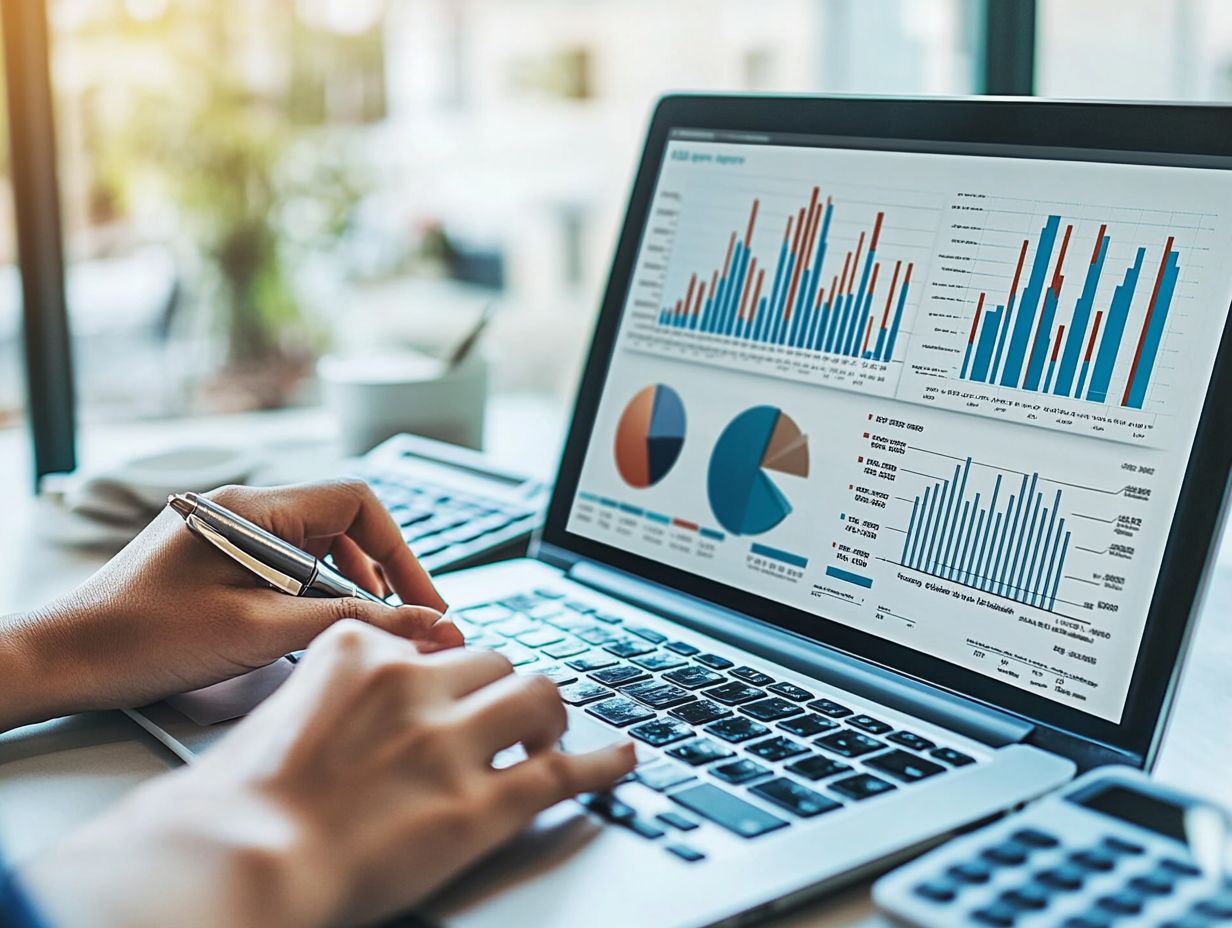
Applying ROI data to your decision-making process means evaluating potential energy efficiency investments based on their calculated ROI. This enables you to allocate resources wisely and maximize returns.
By utilizing this approach, you can prioritize projects that enhance sustainability and deliver substantial financial benefits. For example, a manufacturing firm embraced energy-efficient lighting solutions.
By assessing the ROI, they uncovered that a significant upfront cost would lead to a 30% reduction in energy bills over time, resulting in a payback period of just three years.
Similarly, consider a retail chain that adopted smart HVAC systems and noticed a remarkable decrease in maintenance costs. This validated the usefulness of ROI in their budgetary planning.
These case studies illustrate how knowledge-based decision-making around energy efficiency investments conserves resources and strengthens your bottom line.
Maximizing ROI from Energy Audits
Act now to maximize your ROI from energy audits! To do this, you must adopt a comprehensive approach that includes implementing effective energy optimization strategies, investing in facility upgrades, and continuously monitoring energy performance.
By doing so, you ll ensure that your savings are not only realized but also sustained over the long term.
Start your energy audit today and unlock your potential savings!
Tips for Improving ROI
To improve your return on investment (ROI), focus on energy-saving initiatives and smart facility upgrades. These strategies provide long-term benefits along with immediate savings.
To truly maximize the impact of energy audits, engage team members at every level. Foster a culture that prioritizes energy efficiency by setting clear goals and providing training workshops that enable employees to spot energy waste.
Utilizing data analytics tools can significantly enhance your energy management strategies. These tools allow for real-time monitoring and adjustments based on consumption patterns. Investing in high-efficiency equipment not only reduces operational costs but may also qualify you for financial incentives or rebates, further amplifying your returns.
By establishing partnerships with energy consultants, you gain expert insights tailored to your specific needs. This ensures that every dollar you spend is optimized for maximum energy savings.
Frequently Asked Questions
What is an energy audit and why is it important?
An energy audit checks how well a building uses energy. It analyzes bills and inspects the building to find ways to save energy and money. Energy audits are crucial because they help businesses and homeowners reduce energy consumption, lower utility bills, and improve environmental impact.
How can I evaluate the ROI of an energy audit?
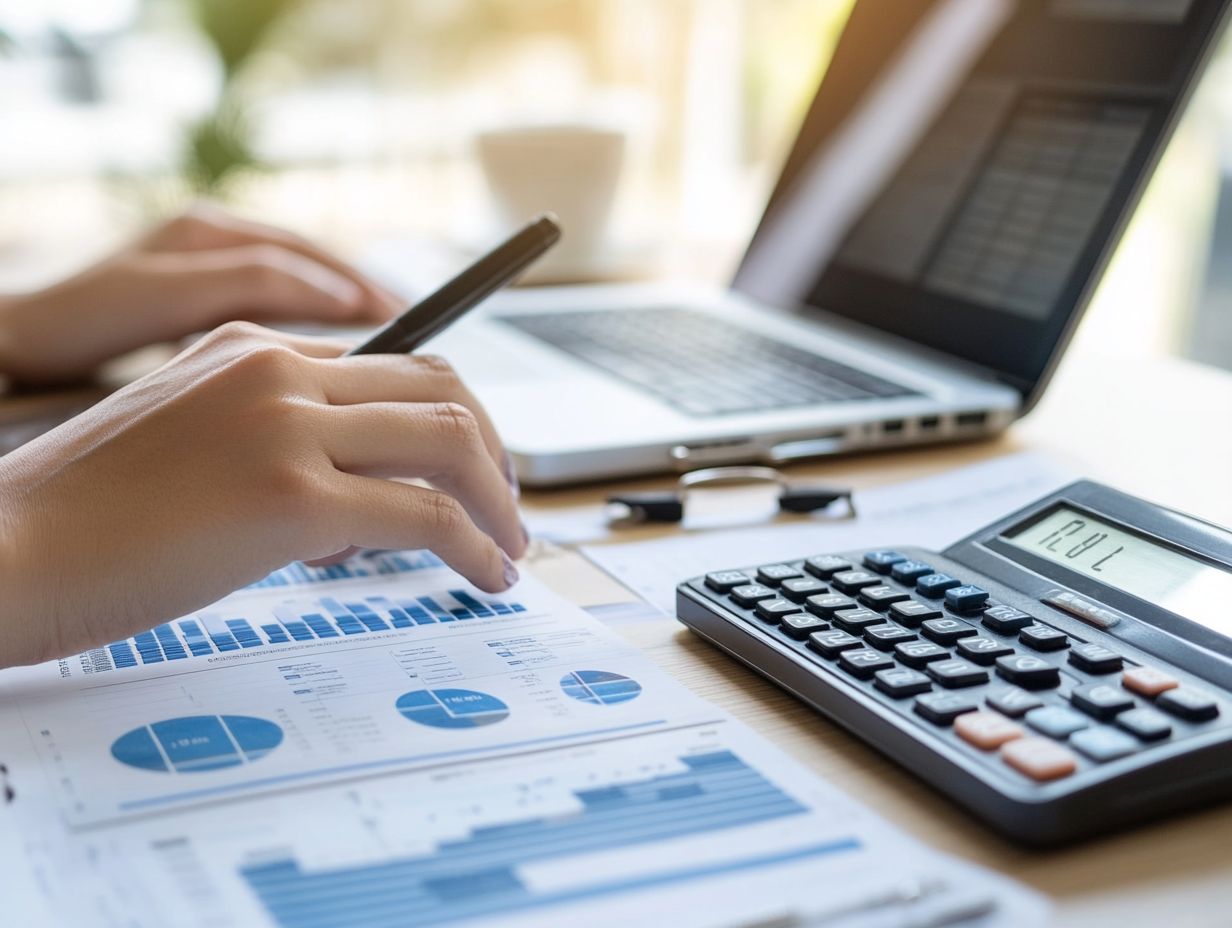
To evaluate the ROI of an energy audit, compare the cost of the audit to the potential savings from implementing recommended energy efficiency improvements. For a deeper insight into this process, you can refer to understanding the cost-benefit of energy audits. Calculate the ROI by dividing the total cost of the audit by the projected annual energy savings. A positive result indicates a profitable energy audit.
What factors should be considered when evaluating the ROI of an energy audit?
When assessing the ROI of an energy audit, consider the cost of the audit, the expenses of implementing improvements, potential energy savings, and the payback period. Additionally, look into how to make energy audits work for you, factoring in available incentives, current energy prices, and the long-term benefits of increased energy efficiency.
Can the ROI of an energy audit vary depending on the type of building?
Yes, the ROI can vary based on building type. For instance, a large commercial building may yield a higher ROI compared to a small residential one due to greater potential energy savings. The age and condition of the building, alongside its energy usage patterns, also impact ROI.
Are there any other benefits of conducting an energy audit besides ROI?
Yes, besides ROI, conducting an energy audit improves overall comfort and health for building occupants, identifies potential safety hazards, and reduces the building’s carbon footprint. It also helps businesses and homeowners comply with energy efficiency regulations and demonstrates a commitment to sustainability.
Can I conduct my own energy audit or do I need to hire a professional?
While DIY energy audit kits are available, it’s generally best to hire a professional. They have the necessary tools and expertise to assess energy usage accurately and identify improvement opportunities. A professional can also provide a detailed, customized report with specific recommendations for enhancing energy efficiency.

